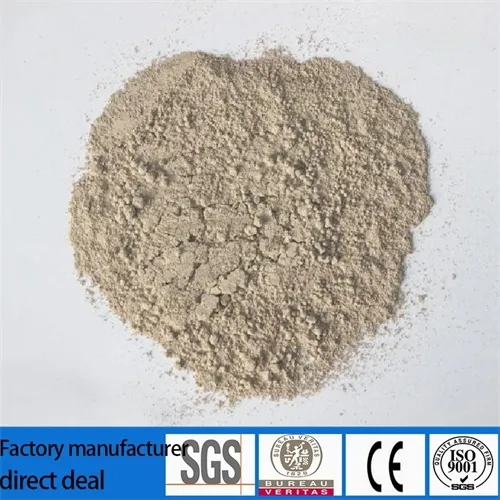Warning: Undefined array key "title" in /home/www/wwwroot/HTML/www.exportstart.com/wp-content/themes/1198/header.php on line 6
Warning: Undefined array key "file" in /home/www/wwwroot/HTML/www.exportstart.com/wp-content/themes/1198/header.php on line 7
Warning: Undefined array key "title" in /home/www/wwwroot/HTML/www.exportstart.com/wp-content/themes/1198/header.php on line 7
Warning: Undefined array key "title" in /home/www/wwwroot/HTML/www.exportstart.com/wp-content/themes/1198/header.php on line 7
- Afrikaans
- Albanian
- Amharic
- Arabic
- Armenian
- Azerbaijani
- Basque
- Belarusian
- Bengali
- Bosnian
- Bulgarian
- Catalan
- Cebuano
- China
- China (Taiwan)
- Corsican
- Croatian
- Czech
- Danish
- Dutch
- English
- Esperanto
- Estonian
- Finnish
- French
- Frisian
- Galician
- Georgian
- German
- Greek
- Gujarati
- Haitian Creole
- hausa
- hawaiian
- Hebrew
- Hindi
- Miao
- Hungarian
- Icelandic
- igbo
- Indonesian
- irish
- Italian
- Japanese
- Javanese
- Kannada
- kazakh
- Khmer
- Rwandese
- Korean
- Kurdish
- Kyrgyz
- Lao
- Latin
- Latvian
- Lithuanian
- Luxembourgish
- Macedonian
- Malgashi
- Malay
- Malayalam
- Maltese
- Maori
- Marathi
- Mongolian
- Myanmar
- Nepali
- Norwegian
- Norwegian
- Occitan
- Pashto
- Persian
- Polish
- Portuguese
- Punjabi
- Romanian
- Russian
- Samoan
- Scottish Gaelic
- Serbian
- Sesotho
- Shona
- Sindhi
- Sinhala
- Slovak
- Slovenian
- Somali
- Spanish
- Sundanese
- Swahili
- Swedish
- Tagalog
- Tajik
- Tamil
- Tatar
- Telugu
- Thai
- Turkish
- Turkmen
- Ukrainian
- Urdu
- Uighur
- Uzbek
- Vietnamese
- Welsh
- Bantu
- Yiddish
- Yoruba
- Zulu
Dec . 19, 2024 01:35 Back to list
Exploring the Applications and Benefits of Xanthan Gum in Food and Industry
The Role of Xanthan Gum in Food Production and Beyond
Xanthan gum is a fascinating and versatile polysaccharide that has gained prominence in various industries, particularly in food production. Derived from the fermentation of sugar by the bacterium *Xanthomonas campestris*, xanthan gum is notable for its unique ability to thicken, stabilize, and emulsify substances, making it an indispensable ingredient in many culinary and industrial applications. This article explores the properties, uses, and benefits of xanthan gum, as well as the implications of its consumption.
Properties of Xanthan Gum
Xanthan gum is a high-molecular-weight polysaccharide composed of repeating units of glucose, mannose, and glucuronic acid. When dissolved in water, xanthan gum forms a gel-like substance that enhances the viscosity of liquid foods and other mixtures. Its solubility and thickening ability are temperature and pH-stable, making it effective in various conditions, which is a significant advantage in food formulation and processing.
One of the remarkable features of xanthan gum is its pseudoplastic behavior. This means that when shear is applied (such as stirring or shaking), the viscosity decreases, allowing for easy mixing and pouring. Upon standing, the viscosity returns, providing the desired thickness. This property is particularly beneficial in salad dressings, sauces, and soups, where consumers appreciate both pourability and a thick, luxurious texture.
Applications in Food Production
Xanthan gum is widely utilized in the food industry for its thickening and stabilizing properties. For instance, it is commonly found in salad dressings, sauces, soups, and ice creams. By preventing the separation of oil and water, xanthan gum ensures that dressings maintain a uniform consistency, enhancing both appearance and taste.
In gluten-free baking, xanthan gum plays a crucial role in mimicking the elasticity and texture typically provided by gluten. It helps bind ingredients together, improving the structure of breads and pastries. As more individuals seek gluten-free alternatives for health or dietary reasons, xanthan gum has become a key ingredient in these formulations.
Moreover, xanthan gum is also employed in dairy products, providing a creamy mouthfeel while preventing the formation of ice crystals in frozen products. Its ability to retain moisture is essential for extending the shelf life of various food items.
xanthan gum e

Health Benefits and Considerations
Xanthan gum is generally recognized as safe (GRAS) by the FDA, and its consumption in food products is widely accepted. It has minimal calories, making it a popular ingredient in low-calorie and low-fat food formulations. Additionally, xanthan gum can respectably provide a feeling of fullness, potentially aiding in weight management.
However, it is worth noting that some individuals may experience gastrointestinal discomfort when consuming large amounts of xanthan gum, particularly if they have conditions like irritable bowel syndrome (IBS). As with any ingredient, moderation is essential. As a thickener, xanthan gum is typically used in small quantities, so it is unlikely to cause issues for most people.
Beyond Food
The applications of xanthan gum extend beyond the kitchen. In the pharmaceutical industry, xanthan gum is utilized as a stabilizer and thickener in various formulations, including liquid medications and topical creams. Its properties enable the creation of consistent and effective products for consumer use.
In the cosmetic industry, xanthan gum is employed in lotions and creams, contributing to a smooth texture and stabilizing emulsions. Moreover, the oil and gas industry also uses xanthan gum in drilling fluids due to its ability to increase viscosity and reduce fluid loss.
Conclusion
In summary, xanthan gum is an incredibly versatile ingredient that has found its way into numerous applications, primarily within the food industry. Its unique properties, health benefits, and stability make it a valuable addition to various products. As consumers continue to seek out products with cleaner labels and functional benefits, xanthan gum is likely to play an even more significant role in the food industry and beyond. Whether enhancing texture in culinary creations or stabilizing essential pharmaceutical formulations, xanthan gum exemplifies the intersection of nature, science, and innovation.
Latest news
-
Certifications for Vegetarian and Xanthan Gum Vegetarian
NewsJun.17,2025
-
Sustainability Trends Reshaping the SLES N70 Market
NewsJun.17,2025
-
Propylene Glycol Use in Vaccines: Balancing Function and Perception
NewsJun.17,2025
-
Petroleum Jelly in Skincare: Balancing Benefits and Backlash
NewsJun.17,2025
-
Energy Price Volatility and Ripple Effect on Caprolactam Markets
NewsJun.17,2025
-
Spectroscopic Techniques for Adipic Acid Molecular Weight
NewsJun.17,2025

